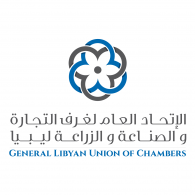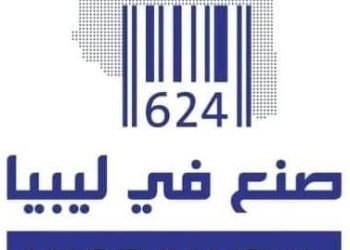By Sami Zaptia.

London, 15 April 2017:
The Libyan General Union of Chambers of Commerce and Industry has called upon the Presidency Council (PC), the Central Bank of Libya (CBL) and Audit Bureau to take steps to save the Libyan economy. These include the devaluation of the Libyan Dinar, subsidy reform and ending foreign exchange controls.
The Union of Chambers said that steps needed to be taken to ‘‘safeguard what remained of the foreign currency reserves’’ and end the budget deficit and liquidity problem.
On subsidies, the Union of Chambers called on the PC to issue decrees obliging the Ministries of Finance and Economy to reform the subsidy system by replacing subsidized fuel with three hundred litres of fuel to every Libyan family per month. This would be distributed through the Family Books using the existing database.
The retail price of subsidized fuel should then be increased in price to its unsubsidized market value at the same time that the fuel cash grant is deposited into citizens’ accounts.
To the CBL, the Union of Chambers called on it to adjust the Libyan Dinar exchange rate or the imposition of a tax on the trade of foreign currency in order to achieve a balance of payments and end the budget deficit, 97 percent of which is made up of foreign currency revenue achieved through oil exports.
The Union of Chambers pointed out that the revalued Libya dinar and the tax imposed on foreign exchange would cover the budget deficit of LD 37.4 million. Any remaining state revenue could be used to ease the increased cost of subsidies to Libyan citizens through 50 litres of fuel per month per person and to cover the cost of the Family Grant which the state is legally obliged to pay but has not included in the 2017 budget.
On the devaluation of the Libyan Dinar, the Union of Chambers called on the three authorities not to set an excessive devaluation of the Dinar and to set one unified exchange rate – without breaking any agreements and obligations with the IMF.
The Union of Chambers also called for the ending of the CBL’s foreign currency exchange controls. It demanded that companies and individuals should be allowed the right to transfer hard currency abroad for matters such as health and education as well as all imports – using the new unified exchange rate and without any exceptions (such as those normally allowed for state entities).
On the new unified devaluation rate, the Union of Chambers demanded a rate of LD 4 to the dollar adding that they were ‘‘confident that the rate will settle at between LD 2 to 2.5 within a year’’.
Finally, the Union of Chambers called for a meeting in which a serious debate takes part in order to take the correct decisions that would resolve the current financial and economic affairs. Adding that they were confident that the economic situation would improve within three months – if their recommendations were implemented.
The recommendations by the Union of Chambers for the reform of the Libyan economy which is going through an acute crisis comes on the back of the black market exchange rate last week reaching over LD 8.50 to the dollar compared to the official rate of LD 1.4 per dollar.
They also come at a time when there are calls for the replacement of CBL Governor Saddik El-Kaber – with the House of Representatives in the process of naming his replacement.
El-Kabir for his part has refused to devalue the Libyan Dinar. He has accused successive Libyan governments of ‘‘scapegoating’’ the CBL by blaming it for all Libya’s economic failures. He has in turn accused them of failing to carry out a necessary package of reforms (political accord, imposing security, subsidy reform, securing borders, fighting the smuggling of subsidized goods), adding that devaluation is not ‘‘a magic wand’’.
He has promised to reveal all in a forthcoming press conference.








